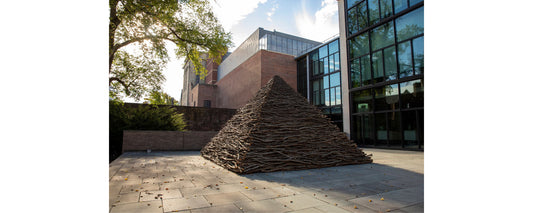New Haven’s had an impressive Hollywood career, as suggested by these 10 movies spanning over half a century. The city informs these films in a variety of ways, from backdrop to foreground, from historical context to Ivy League spirit.
All About Eve (1950). The city is represented by a few seconds of actors walking down what’s supposed to be College Street and the interior of what’s meant to be a room in the Taft Hotel. Yet New Haven is a major character in the final act of this great film about Broadway rivalries and loyalties, starring Bette Davis, Anne Baxter, George Sanders and Celeste Holm. It’s where theater critic Addison DeWitt (Sanders) tells the power-hungry ingenue Eve Harrington (Baxter), “I have not come to New Haven to see the play, discuss your dreams or pull the ivy from the walls of Yale. I have come here to tell you that you will not marry Lloyd, or anyone else for that matter, because I will not permit it.”
Valley of the Dolls (1967). As in All About Eve, there’s an out-of-town theater tryout here which galvanizes the characters. Here’s an extract from Jacqueline Susann’s original novel:
“We’ll come to New Haven,” Gino said quickly. “Anne, Allen and I—”
“No!” Helen wailed. “New Haven’s a mess. We only have three performances there to iron things out before Philadelphia.”
“We’ll make allowances,” Gino said easily.
Volunteers (1985). Tom Hanks plays a supercilious Yalie who gains scruples when he joins the Peace Corps and bands together with John Candy and Rita Wilson in this ’60s-set comedy.
Amistad (1997). The film’s sensational slave-freeing story of course took place right here in New Haven, but Steven Spielberg filmed much of it at Mystic Seaport, which had the sort of historic sea vessels and buildings he needed. There are some nice shots of famed early 19th-century New Haven civic leaders dashing across the New Haven Green, however.
Woman Wanted (2000). Kiefer Sutherland directed and co-starred (with Holly Hunter and Michael Moriarty) in this literate drama based on a Joanna McClelland Glass novel about a Yale-based father and son in need of a housekeeper. The set is an elegant house in East Rock, and there are also some Yale scenes, though they cheat when depicting the New Haven train station—it’s just some nondescript waiting room on a Canadian sound stage with a “New Haven” sign stuck on a wall.
Mona Lisa Smile (2003). Julia Roberts helped make Mystic Pizza up the road in Mystic in 1988, and returned to Connecticut—specifically, New Haven—to film scenes for this 1950s-set drama/romance.
Indiana Jones and the Kingdom of the Crystal Skull (2008). The film’s most memorable scene, a motorcycle chase around the campus of Professor Jones’s academic home base “Marshall College”—in which the hero first meets his son Mutt Williams (Shia LaBeouf)—took several days to shoot, shutting down downtown streets and dolling up Chapel Street storefronts to resemble a college town from the 1950s.
The Sisterhood of the Traveling Pants 2 (2008). While Indiana Jones was filming in another part of downtown, this sequel to the star-making film based on the series of young adult novels was quietly transforming Yale’s University Theatre into… Yale’s University Theatre, from which Carmen Lowell (America Ferrara) flees a high-pressure backstage gig to escape to a Vermont drama camp. Both stages are played by Yale’s. When Carmen, who describes herself as “at Yale, waiting for something to feel real and familiar,” meets a prissy stage director played by Kyle MacLachlan and mentions the school, he responds, “I’ll try not to hold that against you.”
Revolutionary Road (2008). The Sam Mendes adaptation of the classic Richard Yates novel about a festering marriage in the Connecticut suburbs of the 1960s, starring Leonardo DiCaprio and Kate Winslet, was filmed in a private home in New Haven.
Jonah Hex (2010). Josh Brolin played a Yalie-turned-President in the 2008 Oliver Stone film W. Brolin also stars in this comic book Western which turns on a fictional weapon of mass destruction supposedly created by another famous New Haven name. At one point, villain Quentin Turnbull (John Malkovich) elucidates, “Do you know who Eli Whitney was? … After he invented the cotton gin and started the Industrial Revolution, he went to work for the US military, special projects. He pioneered the use of component parts and firearms, new combustibles for munitions, and more or less he single-handedly invented modern warfare. So as an exercise, they ask him to design a super-weapon, a nation-killer. And this is what he envisaged, but they never made it. Because once they realized the potential, they decided that they could not fathom willfully visiting that kind of devastation on their fellow man. [sinister pause] But I can.”
From Wild West evildoers of the 19th century to backstage bickerers in the mid-20th to teen pants-sharing in the 21st, New Haven can stage any (more or less) grand cinema.
Written by Christopher Arnott. This updated story was originally published on July 25, 2012.







